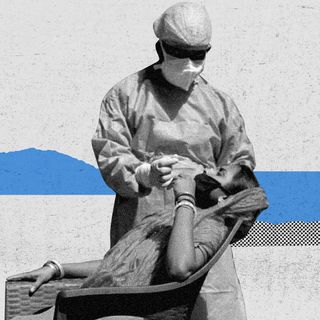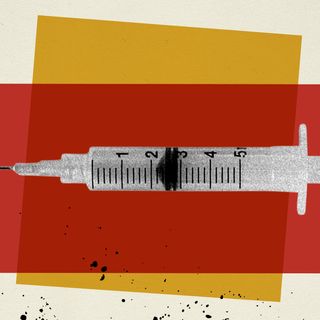The human papillomavirus (HPV) causes the most cases of cervical cancer in women, which globally kills more than 250,000 women a year. While there is evidence regarding the effectiveness of an HPV vaccine against preventing precancerous cervical lesions, a large study published in the New England Journal of Medicine states that an HPV vaccine can also protect against actual invasive cervical cancer — the most severe form of the disease.
The HPV vaccine currently provides protection against genital warts, cervical cancer, anal, cancer, vulvar cancer, vaginal cancer, and possible penile and throat cancers too.
“This is the first time that we, on a population level, are able to show that HPV vaccination is protective not only against cellular changes that can be precursors to cervical cancer but also against actual invasive cervical cancer,” Jiayao Lei, study co-author and researcher at the Department of Medical Epidemiology and Biostatistics at Karolinska Institutet, Sweden, said in a statement.
Researchers followed 1.7 million Swedish women between the ages of 10 and 30 for 11 years. In this group, more than 500,000 women had received HPV vaccinations and 83.2% of them had received their vaccinations before age 17. Results showed that the risk of developing invasive cervical cancer dropped by 88% for women who got vaccinated before turning 17, in comparison to women who did not receive the HPV vaccination. For women between 17 and 30, the risk of developing invasive cervical cancer was halved in comparison to unvaccinated women.
Image Credit: The New England Journal of Medicine
Related on The Swaddle:
We Surveyed 1100 Women. 75% Say Their Gynacs Haven’t Discussed HPV or Pap Smears With Them.
Around 27% of the world’s cervical cancer cases come from India, making it a significant public health concern in the country. While there are two HPV vaccines available in the country as of now, they are expensive, which makes it harder to start a mass vaccination program. Researchers continue to urge the Indian government to purchase these vaccines in bulk to substantially drop their cost, as, “The documented attrition rate of antibody indicates that the protection will last decades. It is unscientific to wait until after longevity is documented before the vaccine is used,” according to the authors of a paper published in the Asia-Pacific Journal of Cancer Prevention.
“In conclusion, our study shows that HPV vaccination may significantly reduce the risk of cervical cancer, especially if completed at an early age,” study co-author Pär Sparén said in a statement. “Our data strongly supports continuing HPV vaccinations of children and adolescents through national vaccination programs.”




